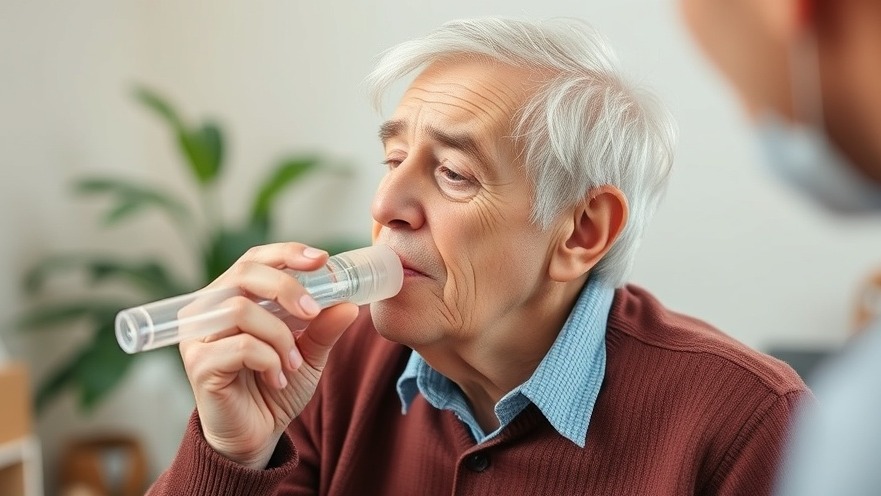
The Power of Breath: Understanding Lung Capacity
Lungs are extraordinary organs that handle the vital task of gas exchange—bringing in oxygen and removing carbon dioxide—more than 20,000 times a day. As we age, our lung function naturally declines, making it crucial to pay attention to our respiratory health. With the right knowledge and techniques, we can enhance our lung efficiency and overall well-being.
Why Lung Health Matters More as We Age
Aging is a natural process that affects everyone; however, many people overlook the importance of lung health as they age. After a knee injury sidelined my ability to run, I realized how much I missed the physical challenge that kept my respiratory system in tip-top shape. For individuals over 35, like many in my audience, it’s essential to reconsider how our lungs handle the everyday demands of life.
Understanding VO2 Max: What Is It and Why Should You Care?
The VO2 max test is a crucial benchmark for measuring cardio-respiratory fitness. It quantifies the maximum amount of oxygen you can utilize during intense exercise. Your body’s ability to efficiently use oxygen can reflect your overall health and fitness levels. Athletes often strive to improve this number, but even non-athletes can benefit from understanding and improving their VO2 max, leading to better endurance and vitality.
Practical Steps to Improve Lung Capacity
Improving lung capacity and efficiency can enhance everyday activities and overall health. Here are some actionable tips:
Engage in Aerobic Exercises: Regular activities like running, swimming, or cycling can significantly boost lung capacity and efficiency.
Practice Deep Breathing: Techniques like diaphragmatic breathing can cultivate better oxygen exchange and lung strength.
Stay Hydrated: Keeping your body well-hydrated aids in maintaining optimal lung function.
Avoid Pollution: Minimizing exposure to smoking, vehicular exhaust, and other pollutants helps maintain lung health.
Lifestyle Adjustments for Optimal Respiratory Health
Adopting a healthier lifestyle is essential for maintaining lung capacity and overall health. Here are some important lifestyle choices to consider:
Healthy Eating: A diet rich in fruits, vegetables, and whole grains provides nutrients that support lung function.
Avoiding Negative Influences: By steering clear of smoking and secondhand smoke, you drastically improve your lung health.
Regular Check-ups: Routine visits to a healthcare provider can help monitor lung function, especially if you have a history of respiratory issues.
Innovations in Lung Health Technology
The advancements in technology can be a game-changer for lung health awareness. Wearable technologies now allow you to accurately monitor vital statistics like heart rate and oxygen saturation, which can help track your lung capacity progress as you improve your fitness. Utilizing apps that track your workouts and lung health metrics can provide motivation and accountability.
Connecting with Your Community
One of the best ways to enhance your lung health is to engage in group activities focused on fitness and wellness. Participating in local health and wellness events, such as Yoga sessions or group running clubs, not only motivates you but also supports a sense of community among fellow health enthusiasts.
Conclusion: The Importance of Prioritizing Lung Health
Taking the time to assess your lung health is a step toward enhancing your quality of life. As we continue to navigate through everyday challenges, ensuring that our lungs are strong and efficient can lead to improved vitality and longevity. So, why wait? Consider taking proactive measures today to safeguard your lung health.
Whether you’re exploring health and wellness in San Antonio or finding ways to elevate your health journey, making informed decisions about your respiratory health is valuable and empowering.
 Add Row
Add Row  Add
Add 




 Add Row
Add Row  Add
Add 


Write A Comment